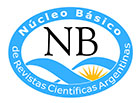An analysis of micro-management of social policy
The case of the Universal Child Allowance in the field
Keywords:
Social Policy, Universal Child Allowance, Micro-Management, InclusionAbstract
The design and implementation of the conditional cash transfer programs have placed additional focus on how the stimulus to families’ incomes would generate more inclusion and, as a result of this income distribution, they would improve access to public goods and services.
In the case of the Universal Child Allowance (La Asignación Universal por Hijo, or AUH), the program made significant progress in broadening the perception of family allowances and, by incorporating conditionalities in health and education, seeks to extend the medium and long-term impacts in order to break the intergenerational cycle of poverty.
Regarding the achievements of these goals, a general analysis indicates that approximately 15% of children and adolescents are not covered by any income transfer scheme, adding to the persistence of high levels of childhood poverty. The working hypothesis is that the population that is still unprotected belongs, in a significantly large proportion, to the segment of persistent poverty, with multiple deficiencies that compromise the cycle of household reproduction and geographical situations. In this framework, the present work focuses on the analysis of the design and micro-management of the AUH, identifying the pending needs and obstacles, in order to deepen and sophisticate the interventions and achieve the effective universalization of coverage.
Downloads
References
Arcidiacono, P., C armona Berrenechea, V., Paura, V. y Straschnoy, M. (2012). La Asignación Universal por Hijo para la Protección Social: ¿una vía de transformación en la política social argentina? En Pautassi, L. y Gamallo, G. (coords.), Más derechos, ¿menos marginaciones? Políticas sociales y bienestar en la Argentina. Buenos Aires: Editorial Biblos.
Boltvinik, J. (2003). Tipología de los métodos de medición de la pobreza. Los métodos combinados. Revista Comercio Exterior, 53(5), 453 - 465
CIFRA, DOCUMENTO DE TRABAJO Nº 7. (2010). La Asignación Universal por Hijo a un año de su implementación. Recuperado de http://www.centrocifra.org.ar/docs/CIFRA%20-%20DT%2007-%20La%20asignacion%20universal%20por%20hijo.pdf
Clemente, A. (2014). La pobreza como categoría de análisis e intervención. En Clemente, A. (coord.), Territorios urba nos y pobreza persistente (13 - 27). Buenos Aires: Espacio Editorial.
Costa, M. I. y Hintze, S. (2014). Capacidad protectoria de la Asignación Universal por Hijo para Protección Social: problemas y debates a cuatro años de implementación. En C. Danani y S. Hintze (coords.), Protecciones y desprotecciones (II): problemas y debates de la seguridad social en la Argentina (243-280). Buenos Aires: Ediciones UNGS.
Costa, M. I.; Curcio, J. y Grushka, C. (2014). La institucionalidad de ANSES en el sistema de seguridad social argentino. Estructura organizativa y fi nanciamiento (1991-2012). En C. Danani y S. Hintze (coords.), Protecciones y desprotecciones (II): problemas y debates de la seguridad social en la Argentina (17-66). Buenos Aires: Ediciones UNGS.
Davolos, P. (2013). La Asignación Universal por Hijo desde la perspectiva de los hogares receptores. Novedades y continuidades. Revistan Estudios del Trabajo, 45, pp. .
Diaz Langou, G. (2012). La implementación de la asignación universal por hijo en ámbitos subnacionales. Documento de trabajo N° 84. Buenos Aires: CIPPEC.
Feijoo, M. del C. y Davolos, P. (2019) Políticas de Transferencia Condicionada de Ingresos y sus articulaciones con el Sistema Educativo. En A. D. Cimadamore, A. B. L. Ivo, C. Midagua y A. Barrantes (coords.), Estados de bienestar, derechos e ingresos básicos en América Latina. México: Siglo XXI .
Garganta, S. (2015). El impacto laboral y demográfi co de la Asignación Universal por Hijo en Argentina (tesis inédita de doctorado). Universidad Nacional de La Plata, La Plata, Argentina.
Hintze, S. y Costa, M. I. (2011). La reforma de las asignaciones familiares 2009: aproximación al proceso político de la transformación de la protección. En C. Danani y S. Hintze (coords.), Protecciones y desprotecciones: la Seguridad Social en la Argentina,1990-2010 (pp. 153 - 185). Buenos Aires: Ediciones UNGS.
Hintze, S., Costa, M.I. y Beccaria, A. (2014). La protección de la Asignación Universal por Hijo a nivel subnacional. Revista Realidad Económica, 286, 37-64.
Lipsky, M. (2010). Street-level bureaucracy. Dilemmas of the individual in public service (30th ann. ed.). New York: Russell Sage Foundation.
Marchioni, M. y Edo, M. (2017, septiembre). Condicionalidades Educativas en la AUH: diagnóstico y alternativas. Ponencia presentada en el Seminario internacional. Entre la medición y la acción: debates en torno al bienestar, Tucumán, Argentina.
Maurizio, R. y Vazquez, G. (2014). Argentina: efectos del programa Asignación Universal por Hijo en el comportamiento laboral de los adultos. Revista de la CEPAL, 113, 121-144.
Moreno, M. (2014). Notas acerca de la medición de la pobreza. En A. Clemente (coord.), Territorios urbanos y pobreza persistente. Buenos Aires: Espacio Editorial.
OIT, UNICEF y FLACSO. (2013). El acceso a la Asignación Universal por Hijo en los pueblos indígenas del norte argentino. Buenos Aires.
Paugam, S. (2012). Protección y reconocimiento. Por una sociología de los vínculos sociales. Papeles del CEIC, 2012/2, 82, CEIC Universidad del País Vasco.
Pautassi, L., Arcidiácono, P. y Straschnoy, M. (2013). Asignación Universal por Hijo para Protección Social de la Argentina. Entre la satisfacción de necesidades y el reconocimiento de derechos, Serie Políticas Sociales. Chile: CEPAL-UNICEF.
Straschnoy, M. (2016). Las condicionalidades de la Asignación Universal por Hijo. Un análisis desde el enfoque de derechos y las capacidades estatales. Revista Administración Pública y Sociedad, 2, 60-78.
UNICEF (2016). Bienestar y pobreza en niños, niñas y adolescentes en Argentina. Buenos Aires.
UNICEF (2017). Análisis y propuestas de mejoras para ampliar la Asignación Universal por Hijo 2017. Buenos Aires.
Downloads
Published
How to Cite
Issue
Section
License
Copyright (c) 2020 Desarrollo Económico. Revista de Ciencias Sociales

This work is licensed under a Creative Commons Attribution-NonCommercial-ShareAlike 4.0 International License.
Manuscript acceptance by the Journal implies the simultaneous non-submission to any other journal or publishing house, and the non-exclusive transmission of the author´s patrimonial rights in favor of the editor, who allows the post-print version use, under the Licencia Creative Commnos Atribución-NoComercial-Compartir Obras Derivadas Igual 4.0 Internacional (CC-BY-NC.SA 4.0) (http://creativecommons.org/licences/by-nc-sa/4.0/deed.es). Articles can be shared, copied, distributed, modified, altered, transformed into a derivative work, executed and publicly communicated, provided a) the authors and the original publication (Journal, Publisher and URL) are mentioned, b) they are not used for commercial purposes, c) the same terms of the license are maintained.
It is hereby stated that the mentioned manuscript has not been published and that it is not being printed in any other national or foreign journal.
The authors hereby accept the necessary modifications, suggested by the reviewers, in order to adapt the manuscript to the style and publication rules of this Journal.









